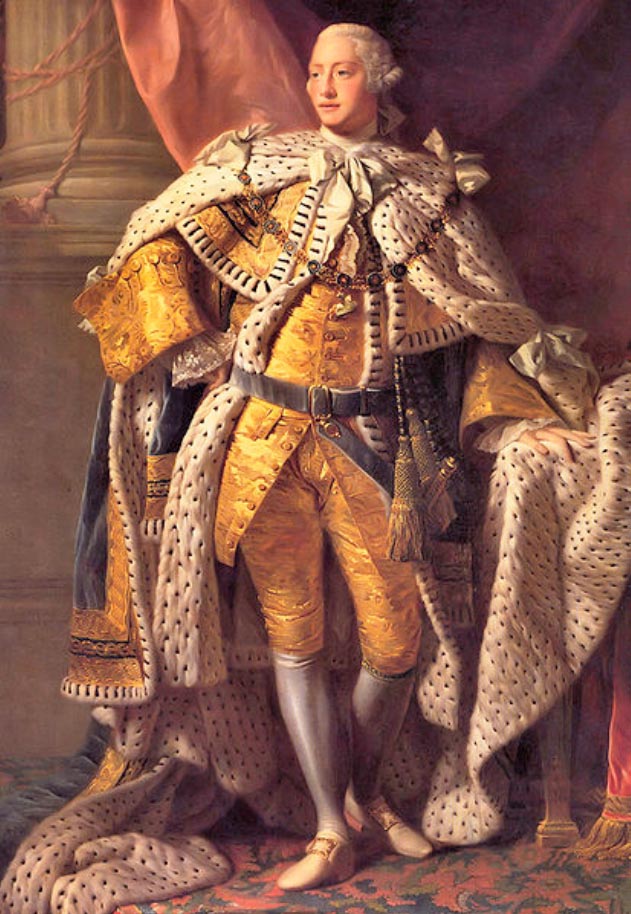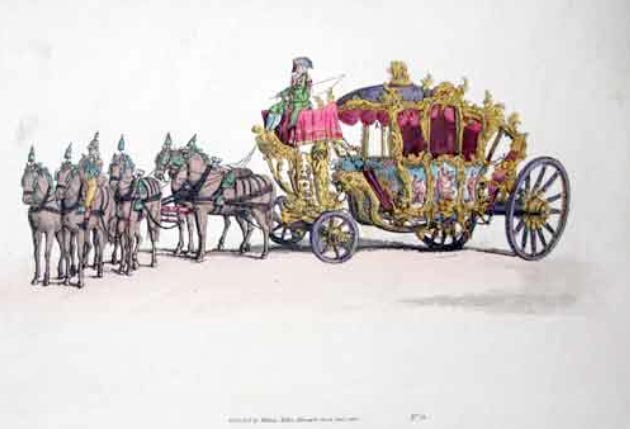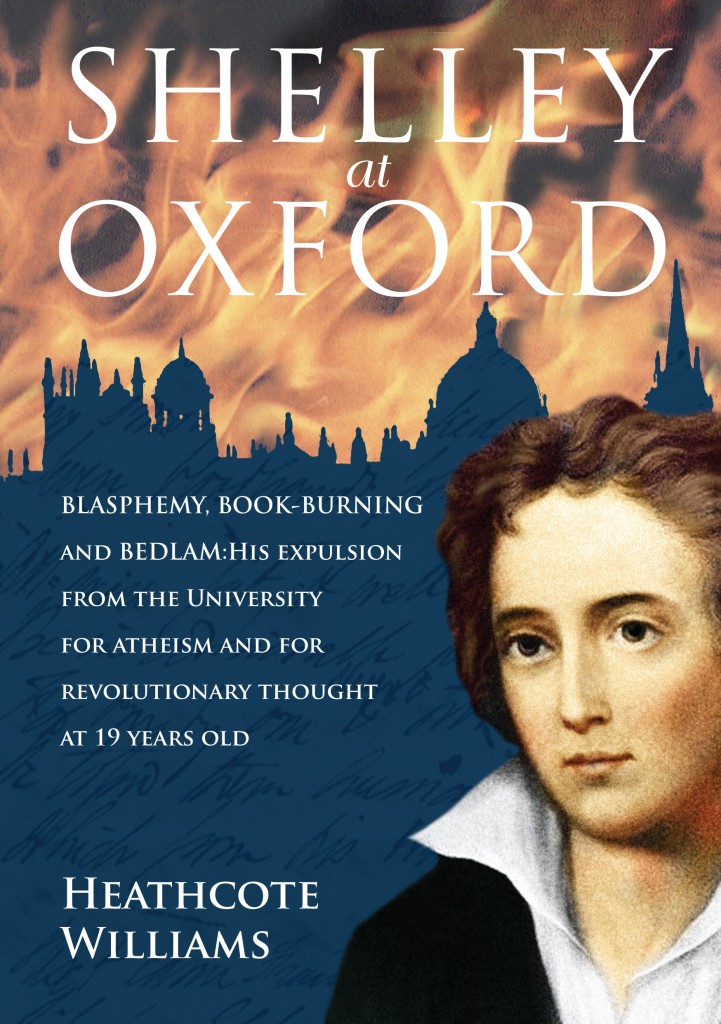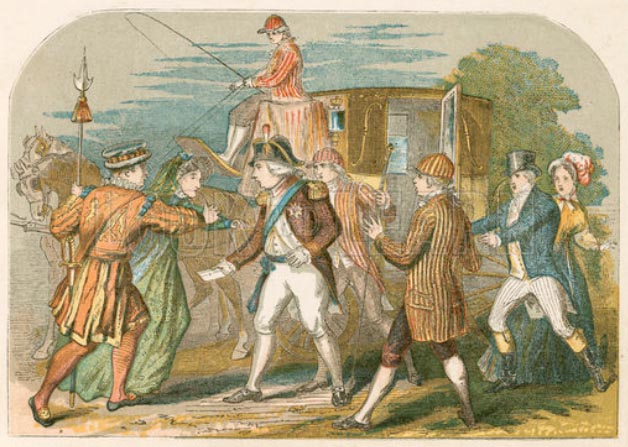In Oxford High Street, in 1810,
Slatter & Munday’s Bookshop
Had a large, bow-fronted window
For displaying their latest wares.
Aged 19, Shelley flooded it with a pamphlet
On ‘The Necessity Of Atheism’.
Which he could only get printed in Worthing
Since no one in Oxford would touch it.
Oxford’s spires guarded a religious plutocracy
Which promoted the State superstition,
With scores of clergy and bishops with mitres,
And crooks for herding their sheepish flocks.
Congregations at dirge-like church services
Would sing sadistic psalms begging God
To smite their enemies; to kill off their livestock
And do away with Egypt’s first born –
Such social engineering pleased Empire-builders
Whose hymns such as, “The rich man
In his castle”, and “the poor man at his gate.
“God made them high and lowly
“And ordered their estate” suited a church
Which cravenly sanctioned the status quo
By its designating special pews to favored grandees
And by being supine on class-ridden relations.
The University was funded by property and their printing Presses
Which had a monopoly on the printing of Bibles:
‘We get your land and your diamonds and your gold
While you? You get to be good with our holy books.’
The imperious, “Slaves, obey your masters”
Colossians 3:22
Was a strategic text from this biblical rule-book
Crammed with its dubious Bronze Age ethics,
And in Oxford’s hands the book became a colonial talisman –
With its presses printing a million copies a year –
Whereupon countries that had previously enjoyed self-rule
Now found they were at George the Third’s mercy.
Kings, according to the British Establishment’s self-deception,
Got to be kings thanks to their British God,
Though to an astute Shelley, “the monarchy is only the string
Which ties the robber’s bundle.”1
Meanwhile the celibate dons of the State religion
Guzzled venison from Magdalen deer park
Then gnawed at ripe game-birds shot on college estates,
And washed them down with hogsheads of claret.
This academic mafia – every whim indulged
By the colleges’ underpaid servants –
Was hired to cook up the date of Creation
Or to invent the location of Eden.
After grasping such numerological nettles
As counting angels dancing on a pin,
They’d move on to decide whether it was Eve or a snake
That had caused man’s original downfall.
Such prurient topics were languidly discussed
By this all-male institution
Until Transubstantiation took over:
When Oxford’s church mice had been found
To have been chewing holy wafers –
Theologically troubling, for if the mice
Had consumed the Christian message
By their nibbling on its spiritualized biscuits –
Then, theoretically, couldn’t the rodents be resurrected
Even though they’d just been exterminated?
Although Oxford’s dons might have been more usefully stretched
By addressing their minds to the poet’s challenging pamphlet,
They scurried off, fearing it’d upset the applecart,
And instead demanded Shelley’s career be ended.
A fellow of New College, the reverend Jocelyn Walker
Ordered Munday’s to burn every copy,
Though he’d be keeping one back to show the authorities
As evidence of blasphemous libel.
It happened that Munday’s bookshop had caused a previous sensation
With another pamphlet of Shelley’s.
When someone called Margaret Nicholson, a needlewoman aged 40,
Had taken a dessert knife to King George.
She’d lunged at him twice as he left the royal carriage
And was then arrested and sent to an asylum.
Mischievously, Shelley had pretended that Nicholson was his aunt –
A woman given to poetic composition –
And Shelley seized the opportunity to attack the king in verse,
He railed at the King for his tyranny.
And published his tirade under the name of Margaret Nicholson
Knowing that he could do so with impunity.

Allan Ramsay, ‘King George III (in coronation robes) 1761-62, National Portrait Gallery.
Shelley then asked Munday to print the failed assassin’s verses
(Which Shelley claimed had been found on her person) –
For Shelley knew how George had been ushered into his grisly reign
With specially commissioned verses.
These bloodthirsty verses were written
By a courtly warmonger called Whitehead,
To be sung before George at St. James’s:
“To arms, to arms, ye sons of might./ And hail with sounds of war the new-born year ! /Britannia, from her rocky height, Points to the Gallic coast, and lifts her spear!/
Whitehead was exploiting England’s ingrained hatred of France
To promote war against revolutionary forces
And Whitehead’s inciting a ‘King and Country’ bloodlust
Could persuade the country to fight for any lie:
“Th’ immortal hatred, which by turns /Wakes and sleeps with fury burns: New cause of just offence has Albion found, /And lo! it bleeds afresh, th’ eternal wound!”
Understandably Shelley, an ardent pacifist,
Thought this demanded a response:
And so used the needlewoman’s purported poems
To lay into the royalists’ warmongering vanity:
“Monarchs of earth!” Shelley wrote, “thine is the baleful deed,
Thine are the crimes for which thy subjects bleed.
Ah! when will come the time, when o’er the plain
No more shall death and desolation reign?
When will the sun smile on the bloodless field,
And the stern warrior’s arm the sickle wield?
Not whilst some King, in cold ambition’s dreams,
Plans for the field of death his plodding schemes…” 2
Oxford had been the royalists’ base in the civil war
And so traditionally still fawned upon royalty;
It benefited from royal Charters, royal grants, and royal visits –
Yet here was Shelley saying that kings should be got rid of:
“…April’s sunshine is a Monarch’s smile,
Kings are but dust – the last eventful day
Will level all and make them lose their sway.
Will dash the scepter from the monarch’s hand
And from the warrior’s grasp wrest the ensanguin’d brand.”
Paranoia about French revolutionary forces
Had been turning England into a police state:
You could be transported for life to van Diemen’s Land
Just for possessing Tom Paine’s Rights of Man.
Yet Shelley continued in this seditious vein
Fired up by overseas war reports
Of Britain’s empire and its military massacres –
All given the royal seal of approval:
“Whilst ruined towns and smoking cities tell,
That thy work, Monarch, is the work of Hell.
‘It is thy work!’ I hear a voice repeat,
Shakes the broad basis of thy bloodstained seat;
And at the orphan’s sigh, the widow’s moan,
Totters the fabric of thy guilt-stainedthrone -
‘It is thy work, O Monarch;’ now the sound
Fainter and fainter, yet is borne around,
Yet to enthusiast ears the murmurs tell
That Heaven, indignant at the work of Hell,
Will soon the cause, the hated cause remove,
Which tears from earth peace, innocence, and love.”3

State Coach, from “The Costume of Great Britain” Hand-coloured Copper Plate Engravings by William Pyne, 1805, Plate 56,
1 P. B. Shelley, A Philosophical View of Reform, written in 1820, but not published until 1839. cf Paul Foot, ‘Shelley’s revolutionary year’ the Peterloo writings of the poet Shelley with a critical introduction by Paul Foot – “That sentence made a good headline for Socialist Worker’s coverage of the Royal Jubilee of Queen Elizabeth in 1977.” P.F.
2 Posthumous Fragments of Margaret Nicholson’, ed., by John Fitzvictor, printed privately, 1810 (‘John Fitzvictor’ was Shelley’s nomme de guerre)
by Percy Bysshe Shelley; Thomas Jefferson Hogg, 1810 [“Posthumous” is poetic license. Margaret Nicholson was not, of course, dead but confined in London’s Bethlehem asylum, known as Bedlam.)




Thrilled this magnum opus in four parts has finally appeared here. Keep posted, for the next instalments.
Comment by Claire on 20 September, 2012 at 2:23 amI wrestle with the idea of how a poet can be an atheist though. They are at the forefront, the receivers of the divine muse, a gift from God, it’s their job, their skill, to deliver divine information – Shelley being one of the most famous despatchers. What else is inspiration – the very word means to be filled with ‘the spirit’. And what is the spirit, other than God?
This has Got to be the puerile and inane reply I have ever read “I WRESTLE WITH THE IDEA OF HOW A POET CAN BE AN ATHEIST”. Have you never heard of Philip Larkin, George Eliot, A E Houseman, Carol Duffy, Kingsley Amis, Robert Graves, Stan Rice, Virginia Wolf, James Baldwin, Tony Harrison, Terry Pratchet, Robert Lewis Stevenson, Rhys Davis, Rebecca Goldstein, Pier Pasolini, Philip Appleman, Pablo Neruda, Miguel Torga, Joseph Conrad, John Oswald, James Thomson, Ismail Kadare, Iris Murdoch and Henrik Ibsen to name but a few. Once again the religious trying to claim superiority.
Comment by G Hales on 4 February, 2014 at 9:52 amNothing to do with religion or claiming superiority, just a humble acknowledgement and respect for the Divine source of the creative gift.
Comment by Claire on 4 February, 2014 at 6:55 pmThough it’s more anti religion, and the wars created in the name of religion, which is understandable, and worthy of Shelley’s brilliant rebuttal. Heroic stuff from two great poets.
Comment by Claire on 20 September, 2012 at 2:33 amWonderful work–and, searing through history, makes its original and breathtaking way into this lamentable NOW. Barack Obama doesn’t look much like King George but you don’t have to look like a tyrant to be a tyrant; you don’t have to look like a murderer to be a murderer. “Ah, did you once see Shelley plain, / And did he stop and speak with you?” Williams has seen him plain and spoken with him. “Rise like lions after slumber.”
Comment by Jack Foley on 31 December, 2012 at 4:56 pmrecommendations
Comment by Visit website on 17 June, 2014 at 6:26 pm